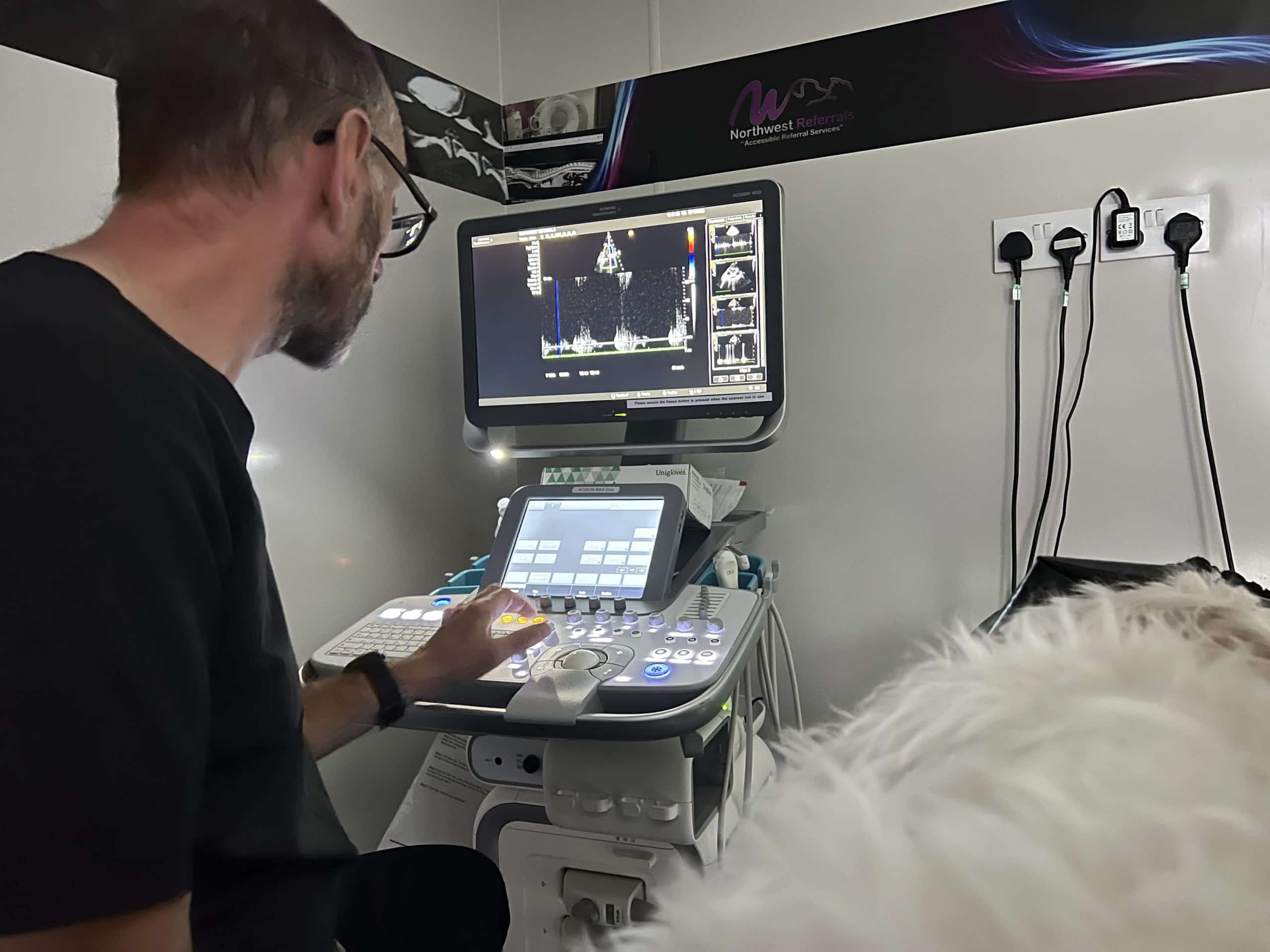Ultrasounds are an incredibly useful diagnostic tool for detecting health issues in dogs. Ultrasounds work differently from X-rays and allow the veterinarian to see the shape, size, and internal structure of organs, such as kidneys, bladder, heart, or lymph nodes. Ultrasound machine can show tumours, masses, and abnormalities in organs, which can then be effectively and strategically treated. An ultrasound examination can also be used to look at soft tissue damage and to monitor pregnancy.
How Is Ultrasound Examination Beneficial for Your Pet?
An ultrasound is a crucial tool in aiding a precise and swift diagnosis. Often a dog will present with symptoms as reported by their owner, and these symptoms may give the veterinarian an indication of likely causes. An ultrasound allows the veterinarian to see inside the dog without having to operate, giving them detailed insight to make a diagnosis.
What Can A Pet Ultrasound Show?
An ultrasound can show tumours, masses, soft tissue damage, abnormalities, blockages, and pregnancies. An ultrasound gives a very detailed view of many areas of the body, which can help the veterinarian to make a swift and precise diagnosis. This insight gives them the knowledge to give your dog the best treatment to treat their disease or condition.
Internal Organs
An ultrasound can be used to look at internal organs, such as the liver, spleen, or lymph nodes.
Cardiac Assessment
A special type of ultrasound known as an echocardiogram can be used to look at the heart. The ultrasound can show the thickness of the walls of the heart, the size of the chambers, the efficiency of the valves, and the movement of the blood. This level of detail enables vets to treat complex heart conditions very effectively.
Non-Invasive Imaging
An ultrasound is non-invasive and painless for pets. Generally, pets won’t need sedation, and will simply remain still while the ultrasound is taking place. It allows for diagnosis without needing to operate.
Soft Tissue Abnormalities Detection
Damage to soft tissue does not show up on an X-ray, but an ultrasound detected tears or changes in the soft tissue, which can then be used to plan treatment and recovery for your dog.
Kidney and Bladder Issues
Urinary issues can be investigated via abdominal ultrasounds, as the ultrasound can be used to look at the kidney, bladder, and urinary tract to see if there are any masses, blockages, or changes.
When Should a Dog Get an Ultrasound?
Your veterinarian will decide whether your dog needs an ultrasound. This will be based on the history that you give to your vet and their external examination of your dog. This combination will give your vet an idea of the problem, and the ultrasound will confirm and define his diagnosis. It gives your veterinarian the chance to study the dog’s organs, soft tissue, heart, and other areas to show him what is happening inside your dog, without the need for invasive surgery. The findings of the pet ultrasound will enable the vet to give a detailed diagnosis and form the basis of the best treatment plan for your pet.
How to Prepare for an Ultrasound?
Your vet will tell you what to do before your dog has an ultrasound to prepare him. You may need to withhold food and water for 8 – 12 hours before an abdominal ultrasound. If the ultrasound is to examine the bladder, then it is best if the bladder is full, so not allowing your dog to pee before the ultrasound is important. Your dog may need to be shaved to ensure that the ultrasound works correctly, but this will be done in the veterinary clinic, you do not need to do this yourself.
Anrich Vets are Here to Help
Here at Anrich Vets, the care and well-being of pets is at the heart of all that we do. We are here to answer any questions, queries, or worries that you may have about vet ultrasounds. Our vets will always explain clearly what they are doing, and why they are doing it. If you are concerned about the health of your dog, always speak to us. The earlier we can diagnose an issue, the higher the chances of your dog having a long and happy life. Simply call our friendly and experienced team here at Anrich Vets, today on 01942 242001

